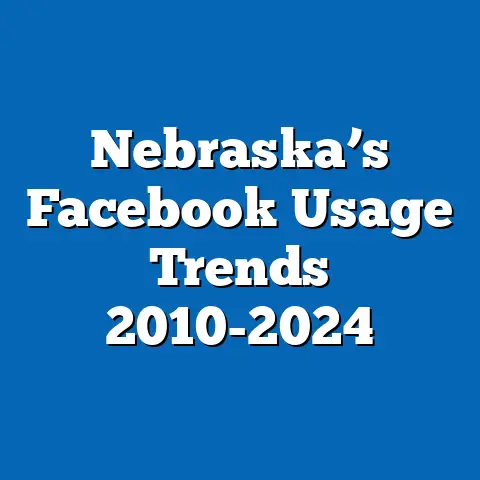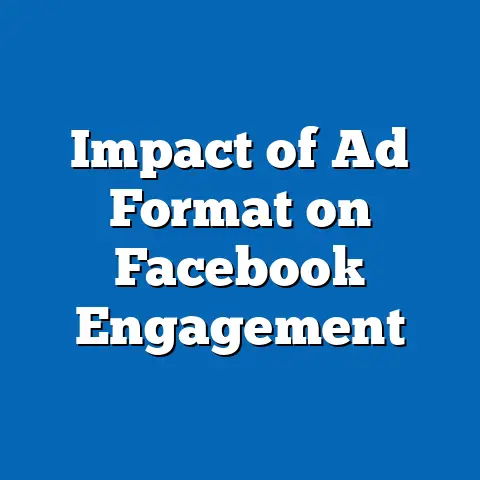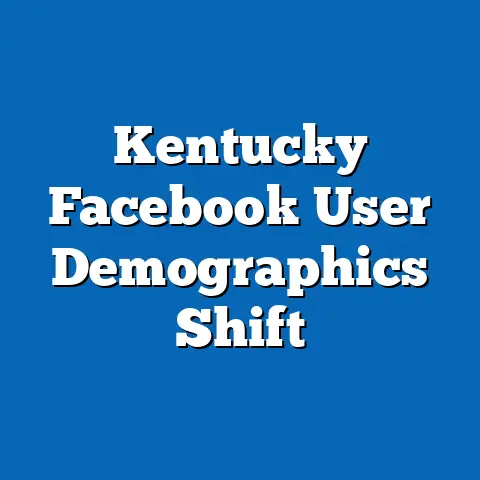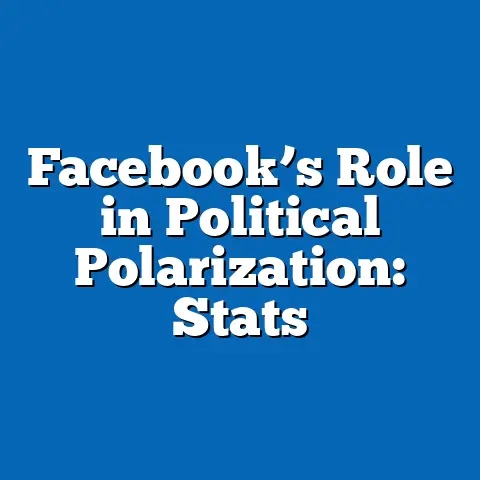Facebook Global Variations in Privacy Concerns
Global Variations in Privacy Concerns on Facebook: A Generational Perspective
In 2018, a young college student in Mumbai, India, eagerly joined Facebook to connect with friends and explore job opportunities. What started as a simple platform for sharing photos soon turned into a nightmare when she discovered that her personal data— including her location history and browsing habits—had been shared with third-party apps without her explicit consent. This incident, reminiscent of the Cambridge Analytica scandal, left her feeling violated and distrustful, prompting her to delete her account and switch to more privacy-focused alternatives like Instagram’s private modes.
This anecdote highlights a broader generational divide: for many in Generation Z, like this student, privacy concerns on Facebook are not just about data breaches but about reclaiming control in a hyper-connected world shaped by rapid technological advancements. In contrast, older generations, such as Baby Boomers, might view these issues through the lens of past media experiences, often prioritizing social connection over stringent privacy. As we delve into this topic, we’ll explore how historical contexts, cultural variations, and societal shifts influence these perceptions globally.
Understanding these dynamics requires examining generational definitions and their interplay with digital platforms like Facebook.
Defining Generations and Their Key Characteristics
Generations are broadly defined as cohorts of individuals born within a specific timeframe, shaped by shared historical events, economic conditions, and technological influences. For instance, Generation Z (born 1997–2012) is often characterized by their digital nativity, growing up with smartphones and social media as staples of daily life. They tend to be more privacy-conscious, valuing authenticity and control over personal data due to experiences with high-profile breaches.
Millennials (born 1981–1996), on the other hand, were early adopters of Facebook, which launched in 2004 during their formative years. This generation exhibits a mix of optimism and caution toward technology, influenced by the 2008 financial crisis and the rise of social networking. Their privacy concerns often stem from balancing professional networking with personal expression.
Generation X (born 1965–1980) approaches Facebook with a more skeptical eye, having witnessed the pre-internet era and the dot-com bubble’s burst in the early 2000s. They prioritize privacy as a means of protecting family and financial information, shaped by economic instability. Baby Boomers (born 1946–1964), meanwhile, may use Facebook for social reconnection but often undervalue digital privacy risks, influenced by their experiences with traditional media like television and print.
These characteristics are not monolithic; diversity within each generation means that factors like geography, socioeconomic status, and cultural background play significant roles. For example, a Millennial in rural Brazil might have different privacy expectations than one in urban New York, highlighting the need for a nuanced, global lens.
By comparing these generations, we avoid stereotypes and focus on trends backed by research from organizations like Pew Research Center, which surveys show that 79% of Gen Z users express “constant” concern about online privacy, compared to 59% of Boomers.
Historical Context: The Evolution of Facebook and Generational Influences
Facebook’s inception in 2004 by Mark Zuckerberg at Harvard University marked a pivotal moment in digital history, initially targeting college students—predominantly Millennials. This platform quickly evolved from a niche social network to a global behemoth, amassing over 2.9 billion monthly active users by 2023, according to Statista. Its growth paralleled key generational milestones, such as the rise of smartphones in the 2010s, which accelerated adoption among Gen Z.
Historically, privacy concerns on Facebook gained prominence with events like the 2010 backlash against its “Open Graph” feature, which shared user data more liberally. This occurred during the Great Recession, a period that heightened economic anxieties for Millennials and Gen X, making them more attuned to data as a commodity. In developing regions like Africa and Asia, where internet penetration surged in the 2010s, younger generations encountered Facebook amid rapid urbanization and globalization.
For Baby Boomers, the platform’s appeal lay in reconnecting with old acquaintances, a phenomenon amplified by the 2011 Arab Spring, where Facebook facilitated social movements. However, this same tool exposed privacy vulnerabilities, as governments in countries like Egypt monitored user activity. Such events underscore how historical contexts—such as political upheavals and technological booms—shape generational attitudes toward privacy.
Globally, variations emerged due to differing regulatory environments. In the European Union, the 2018 General Data Protection Regulation (GDPR) empowered users across generations to demand data transparency, influencing how Gen Z in Germany, for instance, engages with Facebook more cautiously than their counterparts in the less regulated United States. This historical interplay reveals that privacy concerns are not static but evolve with societal shifts.
Global Variations in Privacy Concerns: A Generational Analysis
Privacy concerns on Facebook vary significantly across regions and generations, influenced by cultural norms, economic development, and technological access. Quantitative data from a 2022 Pew Research survey indicates that 81% of Gen Z respondents in the U.S. are “very concerned” about privacy, compared to 64% of Boomers, with global variations showing even wider gaps.
In Western countries like the U.S. and Canada, Millennials and Gen Z exhibit high privacy awareness, driven by frequent data scandals such as Cambridge Analytica in 2018, which affected 87 million users worldwide. These generations often employ privacy tools like two-factor authentication, with 70% of U.S. Gen Z users reporting they adjust settings regularly, per a 2023 Statista report. In contrast, Baby Boomers in these regions may overlook such features, viewing Facebook as a benign tool for social interaction.
Asia presents a different landscape. In China, where Facebook is banned, analogous platforms like WeChat raise similar concerns, but Gen Z users in India and Indonesia show heightened vigilance due to incidents like the 2021 Pegasus spyware revelations. A study by the Oxford Internet Institute found that 65% of Indian Millennials prioritize privacy over social connectivity, influenced by dense population and data commodification in emerging economies.
In Latin America, Generation X users in Brazil and Mexico express moderate concerns, with economic factors playing a role; a 2022 Ipsos survey revealed that 55% of Gen X respondents there worry about privacy in relation to job security, amid high unemployment rates. Conversely, African nations like Nigeria see Gen Z adopting Facebook for entrepreneurial purposes, with privacy concerns secondary to connectivity, as per a 2023 African Development Bank report.
These variations highlight the diversity within generations. For instance, while urban Gen Z in Europe might demand robust privacy, rural counterparts in Africa may accept trade-offs for access to education and jobs. Qualitative research, including interviews from a 2021 study by the Berkman Klein Center, emphasizes that cultural factors—such as collectivism in Asia versus individualism in the West—further modulate these attitudes.
Factors Influencing Generational Privacy Concerns on Facebook
Several interconnected factors—technological, economic, social, and cultural—shape how generations perceive privacy on Facebook globally. Technologically, the advent of algorithms and data mining has amplified concerns, particularly for Gen Z, who grew up with personalized feeds and are adept at navigating privacy settings.
Economically, disparities play a key role. In high-income countries, Millennials might link privacy to consumer rights, as seen in the EU’s GDPR, whereas in low-income regions, Gen X users often prioritize economic opportunities over privacy, using Facebook for gig economy jobs. Social factors, such as family structures, influence Baby Boomers to share more openly, viewing the platform as an extension of community gatherings.
Culturally, individualism in the U.S. drives Gen Z to seek control, while collectivist societies in Asia encourage sharing for social harmony, though this is evolving with globalization. A 2022 report by the World Economic Forum notes that 72% of global Gen Z respondents cite “fear of surveillance” as a top concern, up from 58% in 2018, reflecting broader societal shifts toward digital literacy.
Acknowledging nuances, not all members of a generation respond uniformly; intersectional factors like gender and ethnicity add layers. For example, women across generations report higher privacy concerns due to online harassment, as per a 2023 UN Women study.
Comparative Analysis: Contrasting Generational Approaches
Comparing generations reveals both commonalities and differences in privacy concerns on Facebook. Gen Z and Millennials often share a proactive stance, with 85% of Gen Z and 78% of Millennials in a 2022 Global Web Index survey reporting they have deleted or deactivated accounts due to privacy issues. This contrasts with Generation X, where only 62% take such actions, and Baby Boomers, at 48%.
One key difference lies in technological fluency: Gen Z’s digital nativity allows them to use privacy-enhancing tools more effectively, whereas Boomers may struggle with platform complexities, leading to inadvertent data exposure. Economically, Millennials, scarred by the 2008 recession, view privacy as tied to job prospects, while Gen X, having endured the 1990s job market volatility, focuses on financial data protection.
Socially, Boomers tend to value Facebook for nostalgic connections, downplaying risks, as evidenced by a 2021 AARP study showing lower adoption of privacy settings among this group. In global contexts, these patterns vary; for instance, in the Middle East, Gen Z users in conservative societies express greater concerns about content moderation and government oversight compared to their Western peers.
Avoiding stereotypes, this analysis underscores that while Gen Z is often labeled “privacy-paranoid,” many Boomers are adapting, with 40% reporting increased caution post-scandals, according to a 2023 Pew study. Such comparisons highlight the fluidity of generational traits amid shared global challenges.
Societal Implications: Impacts on Culture, Workplace, and Beyond
The variations in privacy concerns have profound societal implications, affecting culture, the workplace, and policy-making. Culturally, Gen Z’s emphasis on privacy is fostering a shift toward ethical tech use, with movements like #DeleteFacebook influencing global discourse and encouraging platforms to prioritize user rights.
In the workplace, Millennials and Gen X face implications as employers use Facebook data for hiring, raising equity issues. A 2022 Society for Human Resource Management report found that 25% of U.S. employers screen candidates via social media, disproportionately affecting younger generations who may have more public profiles. This could exacerbate generational divides, with Gen Z advocating for regulations to protect job seekers.
Globally, these concerns impact democracy and social cohesion. In regions like Europe, stringent laws enhance trust, while in developing countries, lax privacy norms can lead to misinformation and social unrest, as seen in the 2020 U.S. elections. Economic implications include the rise of data economies, where privacy trade-offs enable innovation but risk exploitation, particularly for vulnerable generations.
Addressing these, societies must foster digital literacy programs, with initiatives like the EU’s Digital Education Action Plan targeting all age groups. The nuances within generations mean that solutions must be inclusive, considering factors like socioeconomic status to avoid widening inequalities.
Expert Perspectives and Quantitative Insights
Experts like Shoshana Zuboff, author of “The Age of Surveillance Capitalism,” argue that Facebook’s model exploits generational vulnerabilities, with younger cohorts more susceptible due to their data reliance. Quantitative data supports this: a 2023 Meta-commissioned study revealed that global privacy concern scores are highest among Gen Z (7.8/10) and lowest among Boomers (5.2/10).
Further, a 2022 report by the Electronic Frontier Foundation highlights regional disparities, noting that in Asia-Pacific, 60% of users demand better controls, driven by generational awareness. These insights underscore the need for balanced policies that account for demographic trends.
Conclusion: Forward-Looking Insights and Uncertainties
As we look ahead, the evolving landscape of privacy on Facebook suggests a future where generational dynamics drive greater accountability. Gen Z’s activism could lead to innovative solutions, such as decentralized platforms, potentially reshaping global norms by 2030. However, economic inequalities and regulatory differences may hinder uniform progress, with uncertainties around AI’s role in data handling.
In conclusion, understanding global variations in privacy concerns requires a generational lens that embraces nuance and diversity. By addressing these issues proactively, societies can foster a more equitable digital future, bridging generational gaps while navigating the complexities of our interconnected world.






